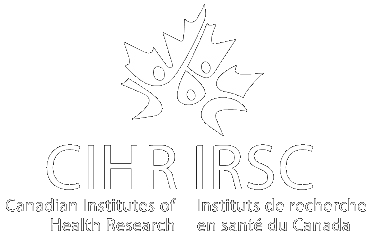Trial Summary
Background: Globally, 2.5 million people with kidney failure receive dialysis, 6 million more would receive dialysis if it were accessible and these numbers are projected to triple over the next 15 years. Although dialysis is lifesaving, the median survival is less than 4 years. Cardiovascular disease is common and accounts for over half of deaths. Treatments to prevent cardiovascular deaths by controlling risk factors for atherosclerotic disease did not demonstrate benefits. However, antagonizing the mineralocorticoid receptor, a treatment for heart failure, appears promising in small trials.
We are determining if spironolactone, an inexpensive, widely available mineralocorticoid receptor antagonist reduces cardiovascular deaths and heart failure hospitalizations in patients with kidney failure in an international, placebo controlled, randomized controlled trial called the Aldosterone bloCkade for Health Improvement EValuation in End-stage renal disease (ACHIEVE).
Methods: ACHIEVE is an international, randomized, placebo-controlled trial enrolling people with kidney failure receiving dialysis (end-stage kidney disease). Eligible participants enroll in an open label run-in to assess tolerance of and adherence to spironolactone 25 mg daily. Participants that are eligible after run-in are randomly allocated to either spironolactone 25 mg daily or matching placebo. Follow-ups occur at 3 and 6 months then 6 monthly thereafter concentrating on assessing safety, encouraging study medication adherence, ascertaining outcomes and resupplying study medication with a subsample undergoing biobanking of serial blood samples from run-in to the end of the first year.
Eligibility: Eligible participants are ≥45 years or ≥18 years with diabetes mellitus (ensures participants are at risk of cardiovascular death), have received dialysis for at least 90 days (ensures dialysis is not temporary) and receive hemodialysis at least twice weekly or peritoneal dialysis at least daily (ensures true kidney failure and risk of cardiovascular death). Participants who have recent severe hyperkalemia, develop severe hyperkalemia during run-in, are non-adherent to the run-in medication, have a scheduled kidney transplant, a sensitivity to spironolactone, an absolute indication or contraindication for spironolactone, a life expectancy less than 6 months, or are pregnant or breastfeeding are excluded from ACHIEVE (to ensure safety and the possibility of benefit).
Intervention: Participants are randomly allocated to either spironolactone 25 mg daily or matching placebo. The dose of spironolactone is based on positive results in prior small trials in dialysis and the mean dose received in prior trials of mineralocorticoid receptor antagonist trials in heart failure trials. Participants who are unable to tolerate the full dose after randomization have the option to reduce the dose, temporarily or permanently, to 25 mg thrice weekly.
Outcome Measures: The primary composite outcome is cardiovascular death or hospitalization for heart failure. Secondary and tertiary outcomes include, cardiovascular death, hospitalization for heart failure, all cause death, all cause hospitalization, hospitalization for hyperkalemia, health related quality of life, dialysis recovery time, new onset atrial fibrillation, stroke and myocardial infarction.
Follow-up and Duration of Study: Participants are enrolled in 49 to 100 day active run-in period. Eligible participants are then randomly allocated and seen at 3 months, 6 months and then 6 monthly to the end of the trial (follow-up range between 1 and 7 years; median follow-up 3 years).
Sample Size: ACHIEVE is event driven with 650 primary outcome events required to identify a hazard ratio of 0.75 with 90% power. After accounting for non-adherence, kidney transplantation, losses to
follow-up and the length of the enrollment period, a total of 2500 participants randomized are required with a median follow-up of 3 years.
